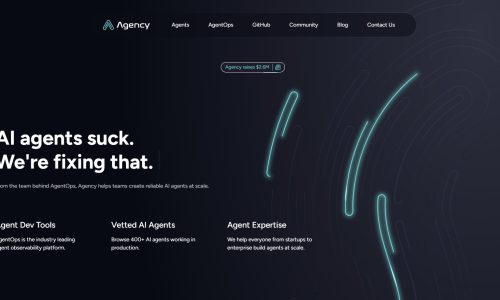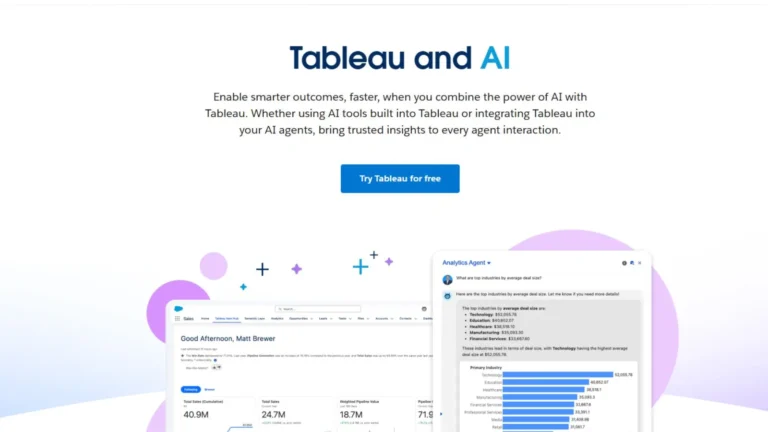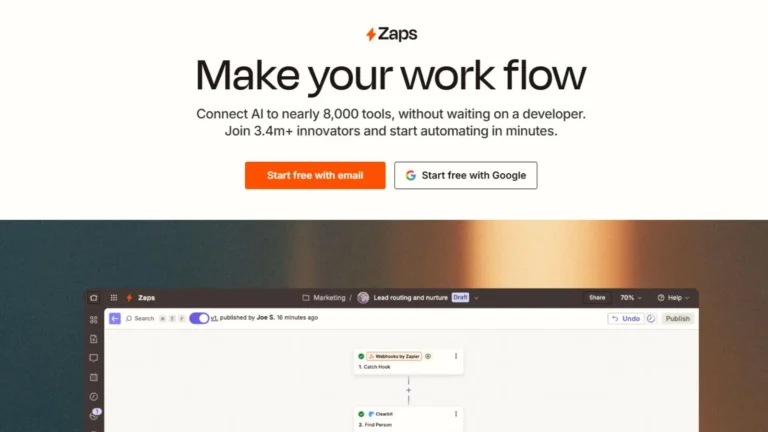The advancement of AI has already started reshaping industries with the automation of low-value tasks, advanced data analysis, and improved customer services. Even so, many businesses fail to utilize AI technology to the fullest because of missing knowledge and/or lack of means. This is the reason AI agencies exist.
An AI agency is a firm that builds, integrates, and maintains tailor-made AI solutions for businesses. Whether a client needs AI driven automation, forecast AI, natural language processing (NLP), or any other type of AI solution, an AI agency has the skills and resources to deliver.
In this article, we will analyze how to engage an AI agency, its main components, advantages and disadvantages, and why contracting an AI agency can be a breakthrough for companies.
What is an AI Agency?
An AI agncy is defined as a firm serving companies of all sizes and from all industries with solutions that leverage AI. These agencies are experts on the development, integration, and strategical application of AI tools for enhancing processes, data-driven decision making, and overall customer satisfaction.
Some services offered by AI agencies are:
Servicing customers with AI-enabled chatbots
Using AI algorithms for business predictions
Automation of processes to improve productivity
Image and speech recognition through AI
Analysis of data and Design of ML algorithms
Phrase and sentiment analysis using text generation in NLP
AI agencies assist companies, regardless of size, from startups to established corporations, in using AI technology for creativity and competitive edge.
How to Use an AI Agency
If you are contemplating the use of an AI agency, I have some tips that will facilitate the process:
Step 1: Determine Your Business Goals
You should outline what functions AI could fulfill within your business before bringing an AI agency on board. Ask yourself the following questions:
Which tasks are performed inefficiently and could be performed by a machine instead?
Is there a need for AI to improve the quality of service delivery?
Can decisions be made better through data analysis?
Step 2: Choose and Analyze An AI Agency
Not all AI agencies provide the same level of service. Look for agencies that have experience in your industry and compare their services and specialization. Keep an eye on:
Years in the industry and their portfolio of completed projects on AI development
If they provide any case studies or reviews from previous clients
What types of AI technologies and solutions are offered?
How much do they charge, and what do their services entail?
Step 3: Strategic Planning and Consulting
Once you have chosen an agency, book a consultation. In this step, the agency will:
Review your business objectives
Provide appropriate AI options.
Orchestrates the plan for AIi integration.
Step 4: Integration of Ais Solutions.
The agency will create and deploy AI solutions to the infrastructure of your business. This may include:
Developing custom AI solutions
Combining AI with CRM, ERP, or Marketing Software
Machine Learning Model Implementation for Data Interpretation
Step 5: Education and Acceptance
The agency will help your team harness AI tools and automate processes, which will streamline adoption. This can include:
Workshops for staff members
Known and unknown documents
Services offered via telephone or online
Step 6: Follow Up and Make Changes
Following deployment, the agency will guarantee that the AI system functions as intended and propose changes to enhance productivity if needed. AI solutions depend deeply on real-time data or user feedback for development.
Key Features of an AI Agency
AI agencies support enterprises and offer various features to harness AI’s capabilities. Here are the most sought-after features:
1. Tailored AI Applications
AI agencies develop custom-made AI products, for instance, chatbots, predictive analytics, or other processes or workflow automation systems.
2. Machine Learning and Analytics
The most sophisticated AI agencies develop machine learning algorithms to process large amounts of information and issues, providing insight that can help the organization improve its value proposition.
3. Workflow Automation
AI allows for the execution of mundane activities, leading to reduced manual errors and enhanced efficiency. These include customer service, scheduling, and data entry.
4. Conversational AI Chatbots
Multiple AI firms focus on the creation of NLP-based chatbots that deliver instant support, increase user engagement, and lower customer service expenses.
5. Customer & Market Trend Prediction
AI firms employ businesses with modeling AI systems to assist in predicting the market, potential customers, and sales activities.
6. Advertising, Brand Marketing, and Client Personalization With AI
Agencies use algorithms to assist businesses with advertisement strategizing, content personalization, and automated email marketing campaigns.
7. The Use of AI With Other Programs
AI firms guarantee that the AI capabilities will work with the business’s current applications like CRM, ERP, or HR management software.
8. Protection and Law Compliance
Trustworthy AI firms guarantee that the AI-use policies follow the data security and compliance norms, which helps the business protect itself from cyber threats and lawsuits.
Also check this Tool Review: Powermode
Benefits and Cons of Hiring an AI Agency
Benefits
✔ AI Proficiency – AI agencies always have the required skills and experience that they would not have in-house.
✔ Suitable Pricing – It is always cheaper to hire an agency than to set up an in-house AI team.
✔ Immediate Solutions – Compared to companies trying to develop AI from scratch, AI agencies can deploy solutions instantly.
✔ Capable of Alteration – AI services can be adjusted according to the demands of the business, which ensures flexibility in the future.
✔ Continuous AI Support – AI agencies ensure support and enhancements to AI to help improve performance over time.
✔ Custom Solutions – AI agencies custom tailor services to address specific business objectives and needs.
Cons
✖ Outsourced Dependency – There is a potential risk of becoming dependent on an external agency to oversee AI maintenance and upgrades.
✖ Data Leak Concerns – Outsourcing sensitive business information increases risks to the agency’s data security if protocols aren’t strictly adhered to.
✖ Significant Startup Investment – New clients incur significant AI servics costs, despite low long term expenses.
✖ External Control Issues – Clients lose power over the degree of customization and use of the AI model by the vendor.
✖ Implementation Flaws – Different AI agencies have different eexpertiseskills; therefore, selection isn’t easy as some level of service quality is expected.
Conclusion
Businesses looking to implement AI technology but lacking appropriate internal resources can benefit from partnering with an AI agency. These specialized AI solutions range from automation and data analysis to intelligent marketing and chatbot services.
If companies want to take advantage of AI technology without substantial internal efforts, they can take an approach that involves outlining business objectives, choosing an appropriate agency, applying AI technologies, and optimizing on an ongoing basis.
Although AI agencies provide affordable and flexible services, businesses should also think about other aspects like data protection, dependency threats, and costs over time. Engaging an AI agency with established credibility and experience will guarantee successful AI transformation.
Incorporating AI agencies as business partners will provide a competitive advantage as the technology progresses. As customer satisfaction increases, companies sustain operational efficiency, which fosters business growth. Collaborating with AI agencies can unlock the full potential of artificial intelligence, regardless of whether you’re a startup or a large-scale enterprise.




